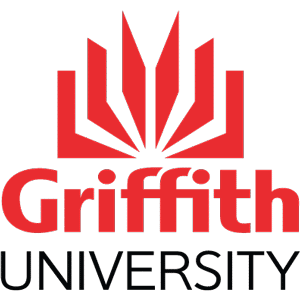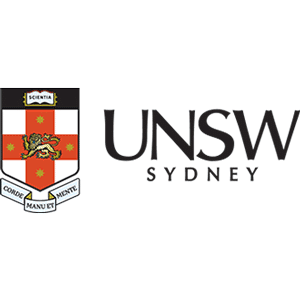Specialisations include analytics, applied finance, FinTech, and business management.

An online Master of Finance can be used to extend financial skills or start a new career. Different kinds of programs are available depending on your background and career goals. Let's explore your options for getting the most out of this degree.
What is a Master of Finance? It is a postgraduate program that provides students with detailed knowledge and skills for the financial services industry. Normally lasting 1.5 to 2 years, it covers financial markets, valuations, investments, and corporate management. Graduates pursue careers in which they deliver financial expertise to companies and clients.
Online Master of Finance
Online masters in finance are designed for busy people to learn on their terms. Accelerated courses allow for year-round part-time study. By doing just one subject at a time, students can easily balance education with full-time work.
The normal study pattern for online learners is to complete one subject every two months. For a 12-subject program, that means you can complete a master's degree in just two years of part-time study. You can also work full-time throughout.
Griffith University - Master of Finance
The Master of Finance at Griffith University provides a well-rounded education for current and aspiring finance professionals. The curriculum aligns with CFA and CAIA exams, enhancing job readiness. Flexible delivery options include online and on-campus studies at Nathan Campus, Queensland. Graduates are well-prepared for careers in finance, investment, and banking sectors. Subjects include equity investments, applied financial planning, and fixed income investments.
The finance industry is practical and hard-nosed, making an online Master of Applied Finance a popular program for professionals across Australia.
With an applied finance course, you can be confident that instruction on theory will be limited. As well, students have abundant opportunities to hone skills with hands-on tasks. Put new knowledge and tools into immediate effect, contributing to financial "muscle memory".
UNSW Online - Master of Applied Finance
The Master of Applied Finance (Online) at UNSW is a 100% online program. Twelve subjects are offered in total, with the option to study a Graduate Certificate or Graduate Diploma in Applied Finance before progressing to the full program. Entry requirements include a recognised Bachelor's degree with a credit average (65% or higher), and the program can be completed in as little as 2 years. The program is aligned with the Chartered Financial Analyst (CFA) curriculum, enabling graduates to pursue the CFA designation.
If you know finance already but want to re-invigorate your career, consider the Master of Financial Technology. A FinTech degree offers a high return because the combination of financial experience and technology awareness is in high demand.
The program skips over much of the traditional ground, focusing on innovation. Explore the FinTech ecosystem, changes in payments and lending, robo-advisory technology, and disruption opportunities.
UNSW Online - Master of Financial Technology
The Master of Financial Technology (FinTech) at UNSW Online prepares you to lead in the evolving FinTech industry. Delivered by Australia’s top-ranked School of Banking and Finance, it covers the intersection of finance and technology. Gain skills in data management, blockchain, and digital finance, preparing for roles such as financial analyst, blockchain developer, and fintech business analyst. The 100% online structure offers flexibility, with intakes throughout the year and a completion time of two years.
Are Masters in Finance Hard?
Yes, you could consider Masters in Finance hard if you lack a strong interest in the field. Participants undergo advanced financial training to prepare for diverse roles in financial services. The learning goes beyond what is covered in a Bachelor of Finance or equivalent undergraduate degree.
Many students have a finance background, such as a business bachelor's degree. If you haven't studied finance at university before, you'll normally have to either (a) first complete a Graduate Certificate in Finance or (b) do a two-year program that contains introductory subjects.
Students learn to make sound financial decisions by applying theory to different scenarios. Subjects explored include asset classes, equity analysis and valuation, fixed-income investments, financial statement analysis, derivatives, and risk management.
Graduates know financial management principles and market workings. They have skills to model, evaluate, and communicate financial information. They know how to value companies and conduct financial research. With these difficult-to-acquire abilities, graduates are employable in many business fields.
Related: What Do You Do In a Master of Finance?
Why This Degree Is Worthwhile

By preparing you for high-paying jobs in the financial sector, a Masters in Finance is worth the investment. Graduates gain skills that are useful in many different roles, along with an impressive qualification that is well-recognised by employers.
Topics students explore in a MFin program include financial analysis, investments, risk management, financial modelling, and corporate finance. These subjects provide students with a strong understanding of the discipline, including the tools to make sound financial decisions.
After graduating, you are positioned for lucrative jobs such as financial analyst, investment banker, portfolio manager, or risk manager. These jobs typically offer six-figure salaries, making the program a wise investment in your career.
By doing an accelerated online course, you further boost the ROI from this degree. You can study part-time while working full time and earn the masters degree in two years,. Advance your career without sacrificing your current job.
Why Australia May Be the Best Country for MFin
If you are wondering if Australia is a good country for getting a Master's degree in Finance and pursuing a career in this field, you need look no further than the Australian stock market. Finance is a huge industry here.
Of Australia's seven largest companies by capitalisation, five are banks or financial services companies. The four major banks are CBA, NAB, Westpac, and ANZ. Also among the biggest companies is Macquarie Group, a global financial services provider.
Given the significance of the financial sector in Australia's economy, it is not surprising that Finance is a popular choice among postgraduate students. Jobs are widely available in investment banking, wealth management, corporate finance, risk handling, and financial analysis.
The size of the financial sector, including a dynamic property market and surging presence in FinTech, also contributes to expertise at Australian universities. Lecturers are knowledgeable about their fields since the country is a world leader in many areas of finance.
Course Structure
Here are example subjects from different programs, detailing some of the common topics.
The subject explores alternative classes of assets: unconventional assets often ignored in mainstream courses. Particular attention is paid to venture capital and private equity since these are major types. Topics include (a) venture capital in Australia (and other countries), along with funding from angel investors, banks and other institutions (b) fundraising and the qualities of venture capital firms (c) entrepreneurial ventures at different development stages (d) financial contracts in venture capital, such as staging and syndicating deals, finance forms, board membership, restrictions and confidentiality (e) exiting investment (f) entrepreneurial firm valuation and (g) buyouts.
Source: UNSW MFin
This course covers equity analysis and valuation techniques and practices. Students learn both quantitative and fundamental analysis methods used by financial analysts to prepare trade recommendation reports. After completing the subject, students can apply valuation models, analyse a company's competitive advantage and sustainability, and evaluate its debt management through relevant financial ratios.
Source: UNSW MAppFin
The subject covers analytical tools that can be applied to fixed-income investment market. The course explores topics such as: analysing fixed income; money and capital market instruments; analysing credit risk; interest rate movements; interest rate term structure; interest rate risks; and valuing bonds.
Source: Griffith University MFin
This course teaches theoretical and practical knowledge for managing financial functions in multinational firms. Topics include international finance, exchange rates, hedging strategies, investment, and managing risk. Real-world examples, cases, and data exercises are used to promote active learning.
Source: UNSW MAppFin
Students explore concepts and methods for managing financial risks, such as price and quantity risk, interest rate risks, and credit and currency risks. Example topics: exchange-traded instrument and over-the-counter instruments for managing risk, value-at-risk, agency problems, security design, securitisation, and financial engineering. Real-world cases are used to contrast successful and unsuccessful practices.
Source: UniMelb MFin
This course covers some fundamental pricing principles that apply to various derivative contracts in financial markets, and the main types of derivative contracts and valuation techniques. The course also emphasises the use of derivatives in financial risk management. It includes an options market-making simulation that aims to help students gain practical knowledge on the sophisticated options market-making mechanisms.
Source: UNSW MAppFin
Why is a high level of ethical standards needed in investment management? The unit covers the Code of Ethics and the Standards of Professional Conduct. It also explores key features and the scope of the Global Investment Performance Standards (GIPS), why they were created, to whom they apply, and how to verify GIPS compliance.
Source: UNSW MAppFin
This subject covers qualitative and quantitative analysis of company reports, strategic analysis, and valuation techniques. It emphasises the practical role of financial reports in firm valuation using real-life scenarios, and teaches students to interpret financial information within economic, industry, and strategic contexts. Students will gain practical knowledge and an increased appreciation for evaluating financial statement information.
Source: RMIT MFin
How Much Does It Cost in Australia?
The average cost for an Australian student attempting a 12-subject finance master's program in 2024 is estimated to be AUD $51,721. This statistic is based on indicative tuition fees at five Australian universities.
Indicative tuition fees for 5 Master's in Finance degrees
| University | $ per subject | 12 subjects |
|---|---|---|
| Griffith University | $3,875 | $46,500 |
| Deakin University | $3,925 | $47,100 |
| Swinburne | $4,225 | $50,700 |
| University of Melbourne | $4,692 | $56,304 |
| UNSW Online | $4,883 | $58,000 |
Sources: University websites. The costs are for Australian students commencing in 2024. Programs may be longer or shorter than 12 subjects depending on prior learning and the policy on advanced standing at the university. Costs may be higher for international students.
The table shows that the cost per subject ranges from $3,875 at Griffith University to $4,883 at UNSW Online, with program fees ranging from $46,500 to $58,000.
How Long Is the Degree?
In Australia, the standard length of a Master of Finance degree is 12 subjects. A full-time load is typically considered to be 8 subjects per year, which means the degree can be completed in 1.5 years.
However, students without a finance background may need to study up to 16 subjects at some universities, which can extend the program duration to 2 years.
Applicants with qualifications such as a Graduate Certificate or Honours degree in Finance may be eligible for credit for prior learning. This can reduce the number of required subjects to 8, meaning the degree could be completed in as little as 1 year.
Accelerated online courses allow part-time students to do 1 subject every 2 months. Hence, the degree can be earned in just 2 years of part-time study online.



